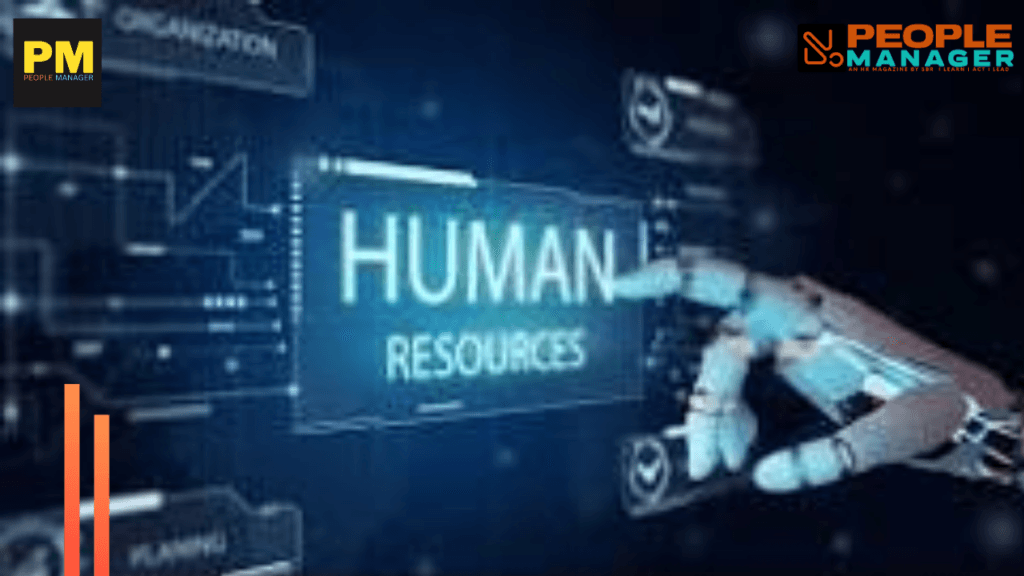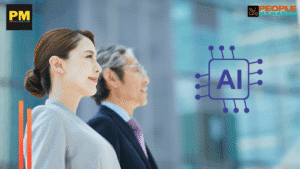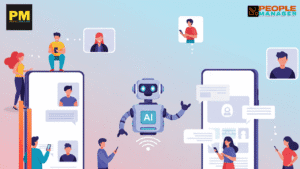AI-Driven HR: Leveraging Artificial Intelligence for Smarter Talent Management and Retention
This post discovers how AI is transforming talent management and retention, and also how professionals can enhance their skills with AI courses in India to lead the HR field.

In today’s digitally changing business environment, artificial intelligence (AI) is not a sci-fi dream anymore. It’s now becoming an essential driving force behind changing the way organizations work, and human resources (HR) is not exempted either. From attracting the right people to retaining staff members and making them happy, AI-based HR processes are simplifying operations and evolving conventional workflows into smart, data-driven solutions.
This post discovers how AI is transforming talent management and retention, and also how professionals can enhance their skills with AI courses in India to lead the HR field.
The Changing Role of HR in the AI Era
Human Resources has long been linked to manual and people-oriented processes such as recruiting, onboarding, employee engagement, performance management, and retention. But as companies grow and data becomes more integral to decision-making, HR professionals are turning more and more to AI to handle large employee datasets, forecast turnover, tailor experiences, and facilitate greater alignment between employees and organizational objectives.
AI is not taking over the work of HR professionals but enabling them to take better, quicker, and more strategic decisions. With intelligent automation and insights from data, AI tools are becoming the HR team’s go-to most trusted partner.
Applications of AI in Talent Management
1. Smarter Recruitment with AI
One of the biggest effects of AI on HR is in hiring. AI-driven Applicant Tracking Systems (ATS) are now able to scan resumes, match candidates with job postings, and even predict success in a position. Natural language processing (NLP) algorithms assist in screening applicants in an efficient manner, saving time-to-hire and removing unconscious bias.
Chatbots are also employed for initial screening and interview scheduling so that HR professionals can dedicate their time to more strategic interactions. Some advanced technology can even gauge facial expressions and tone during video interviews to gauge soft skills.
2. Personalized Employee Onboarding
AI improves onboarding processes by tailoring learning paths, creating task reminders, and automating document verification. AI-powered virtual assistants can respond to new employees’ FAQs, grant access to required resources, and facilitate a smoother integration into the company.
3. Data-Driven Performance Management
AI enables HR managers to monitor real-time performance metrics and gain predictive insights into employee productivity, potential, and red flags. Machine learning algorithms can detect patterns that predict disengagement or burnout, triggering early interventions. This makes reviews more objective and ongoing instead of annual and snapshot-like.
4. Predictive Analytics for Retention
Retention is one of the biggest challenges HR professionals face. AI assists in overcoming this by reviewing numerous factors like job satisfaction, manager reviews, engagement ratings, and pay trends. Predictive analytics can identify workers who could be potential leavers, allowing HR to proactively intervene with career planning or specific engagement initiatives.
AI in Employee Engagement and Development
1. Personalized Learning and Development
AI curates personalized learning paths for employees based on their roles, past performance, and career goals. Learning management systems (LMS) enhanced by AI recommend courses, track progress, and assess effectiveness.
For professionals interested in this transformative field, several AI courses in India are now available that focus on HR tech and AI applications in workforce management. These courses not only build technical understanding but also contextualize AI usage in people-driven environments.
2. Sentiment Analysis for Employee Feedback
Sentiment analysis software based on AI can analyze employee feedback gathered from surveys, emails, and chat forums. This provides HR with an understanding of the mood and morale in the workplace in real time. Rapid identification of negative sentiments can enable HR to respond rapidly and enhance workplace culture.
3. AI for Internal Mobility
Companies are leveraging AI to drive internal mobility by suggesting open positions to existing employees based on their career goals, skillset, and interests. This assists in retaining best performers and lowering recruitment expenditures, and also drives a culture of growth within the firm.
Benefits of AI in HR Management
- Increased Efficiency: Repetitive tasks like resume screening, interview scheduling, and data entry are automated, freeing HR professionals to concentrate on strategy.
- Enhanced Accuracy: AI minimizes human error in decision-making through data-driven insights.
- Scalability: AI solutions are easily scalable and can be applied to handle HR operations for businesses of any size.
- Bias Minimization: Well-structured AI applications can assist in reducing implicit bias in hiring and performance assessments.
- Proactive Decision-Making: Predictive analytics enable HR to take proactive steps rather than reactive actions.
Challenges to Consider
Although AI in HR is full of promise, it’s not problem-free. Issues include ethical dilemmas, data privacy, transparency of the algorithms, and the necessity for continuous monitoring to avoid biased outputs. HR professionals must be trained in the ability to comprehend and responsibly use AI solutions.
This underscores the increased relevance of AI courses for working professionals and business leaders. Such courses empower professionals with the acumen to coexist with AI, understand its outputs, and implement it ethically.
Upskilling: Why AI Courses Are Crucial for HR Professionals
With AI remaking industries, HR professionals have to adapt as well. Engaging in AI courses in India specifically for HR, data analysis, or business intelligence enables professionals to:
- Understand the basic concepts of AI and machine learning
- Translate AI-driven insights to HR decision-making
- Master using AI-driven HR tools and platforms
- Become agile in a job market dominated by technology
With platforms like TalentSprint, UpGrad, Great Learning, and Coursera offering specialized AI courses, HR leaders now have ample opportunities to build future-ready skillsets.
Final Thoughts
AI is not just a supporting mechanism; it is now a strategic driver in HR. From recruitment to retaining employees, every phase of the talent life cycle is getting smarter, faster, and better due to artificial intelligence. By accepting AI technologies and investing in proper learning routes, such as AI courses in India, HR professionals can drive the development of future-proofed and people-oriented workplaces.
As companies persist in implementing digital transformation strategies, the collaboration between AI and HR can only intensify, paving the way for a more data-driven, inclusive, and agile future workforce. For further insights into the evolving workplace paradigm, visit
- SHe-Box Portal Pushes Companies to Take Workplace Harassment Complaints Seriously: 2025 Report - February 16, 2026
- India’s Labour Codes Are Redrawing the Hiring Map- Tier III & IV Cities Emerge as the New Growth Engines: Report - February 11, 2026
- Girish Ramadurgam on Talent-Fitment” Problem: How to resolve the skill mismatch - January 19, 2026









